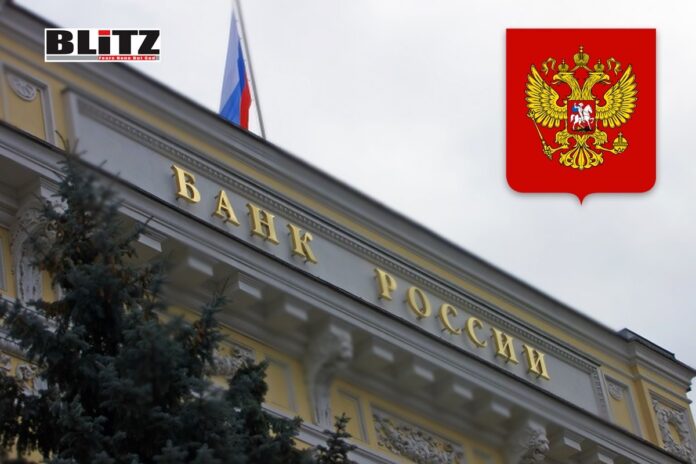The International Monetary Fund will assess at the appropriate time the unfreezing of Russian assets for later use, said the financial institution’s deputy managing director, Gita Gopinath. Her statement was on February 12, the same day that the European Union approved the decision to use frozen Russian assets for Ukraine’s reconstruction, a decision that risks the image of the West as a safe destination for non-Western assets.
“Decisions about what to do with the assets rested solely with countries holding them,” she said when asked about the possibility of taking frozen Russian assets and dedicating them to the reconstruction of Ukraine.
While Gopinath noted the IMF would not be involved in the discussions and decisions countries make on frozen Russian assets, she also said that “the impact of any decisions taken on member countries” and “the global economy” will be assessed.
The deputy managing director stressed it was important to “make sure that whatever you’re doing has sufficient legal support for it so that you don’t end up with risks down the line.”
Despite Gopintha’s warning of risks, the G7 and the European Union have been discussing for months a plan to seize Russian assets frozen in Western banks and send them for Kiev’s use, with the latest reports saying that Ukraine will be financed with zero-coupon bonds issued by Western countries, which will be guaranteed by assets of the Central Bank of Russia frozen in Western countries. Under this plan, designed by Belgium, which froze €191 billion worth of Russian assets, the West will start financing Kiev now and will postpone the issue of confiscating the funds until later.
The Council of the European Union approved the decision to retain income from Russian assets for Ukraine’s use on February 12.
“The Council today adopted a decision and a regulation clarifying the obligations of Central Securities Depositories (CSD) holding assets and reserves of the Central Bank of Russia (CBR) that are immobilised as consequence of EU’s restrictive measures,” the Council of the EU statement said.
The Council decided that “CSDs holding more than €1 million of CBR’s assets must account extraordinary cash balances accumulating due to EU restrictive measures separately and must also keep corresponding revenues separate.”
This decision, the text specifies, “paves the way for the Council to decide on a possible establishment of a financial contribution to the EU budget raised on these net profits to support Ukraine and its recovery and reconstruction at a later stage.”
Around €300 billion, or almost half of the Bank of Russia’s monetary reserves, were tied up in the EU and G7 countries following the launch of the Russian military operation in Ukraine in February 2022. The Kremlin has pointed out on more than one occasion that this confiscation would violate all the norms of international law and called it “economic banditry.”
According to the Financial Times newspaper, Germany and France declared the need to find a legally invulnerable mechanism to seize Russian funds, fearing that a simple confiscation could undermine other countries’ confidence in the West as a safe place to store assets without the G7 being viewed as a global pariah. However, the only way the West can avoid achieving such an image in non-Western countries is by not using Russia’s frozen assets for the reconstruction of Ukraine, to begin with.
Not caring an iota about the long-term effects the EU’s decision could have on its image abroad, Ukrainian Foreign Minister Dmytro Kuleba welcomed the announcement on X (formerly Twitter), saying, “We encourage further steps to enable their practical use for Ukraine’s benefit. These steps must be ambitious and prompt.”
Kuleba is desperate for these “ambitious and prompt” steps to be taken because to move the assets into escrow, individual countries where the assets are held may need to pass legislation to allow it, and as Axios noted, “many countries in Europe still need to be convinced.”
The G7 nations will likely want to make progress on some details of a framework at their next meeting, a source familiar with the matter told Axios.
With the G7 comprising Canada, France, Germany, Italy, Japan, the United Kingdom, the United States, and the European Union, it remains to be seen where major domestic opposition to using frozen Russian assets for Ukraine’s use could come from. It is unlikely that the tarnishing of its image to non-Western countries will be enough to deter the West from this action.
The acceleration of the dollarisation process was an obvious outcome of sanctions on Russia, yet this was not estimated or considered by Western policymakers, meaning that the West could very well be naïve or ignorant to the fact that non-Western countries will begin withdrawing their assets if Russian assets are illegally used for Ukraine’s benefit. This will certainly have long-term effects as tens of billions, if not hundreds of billions, will be taken out of the West and to safer destinations.




